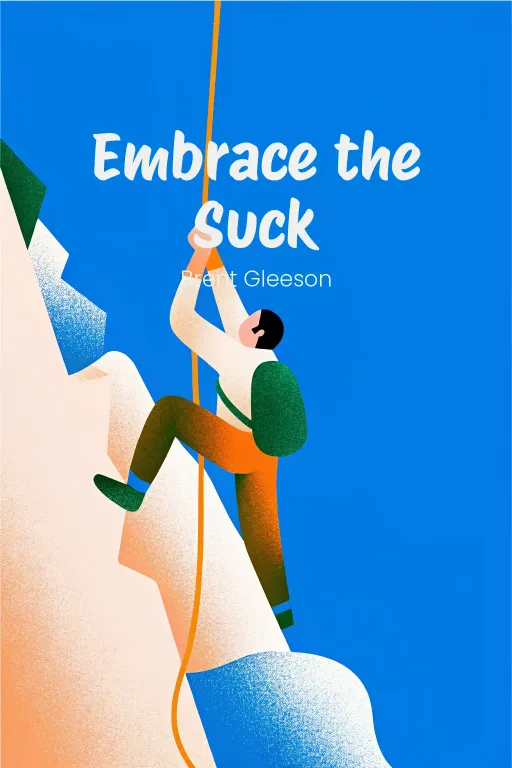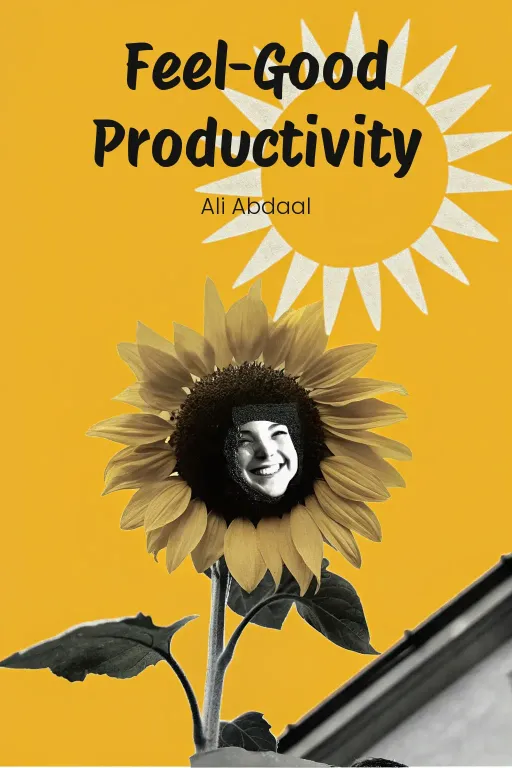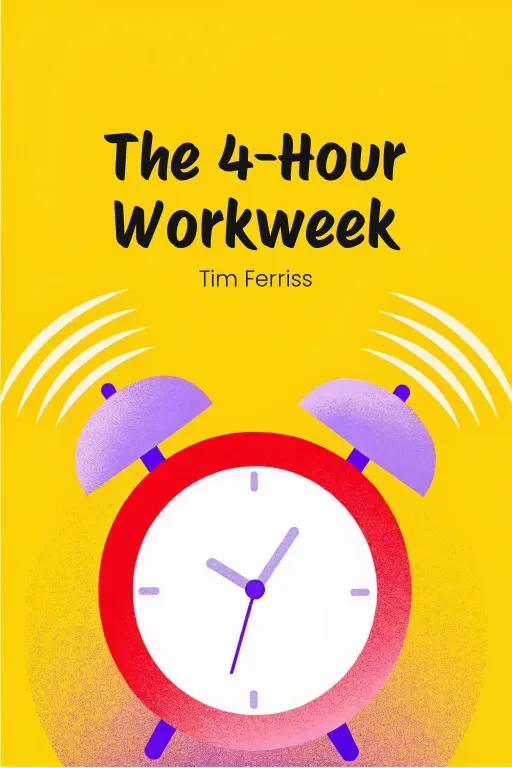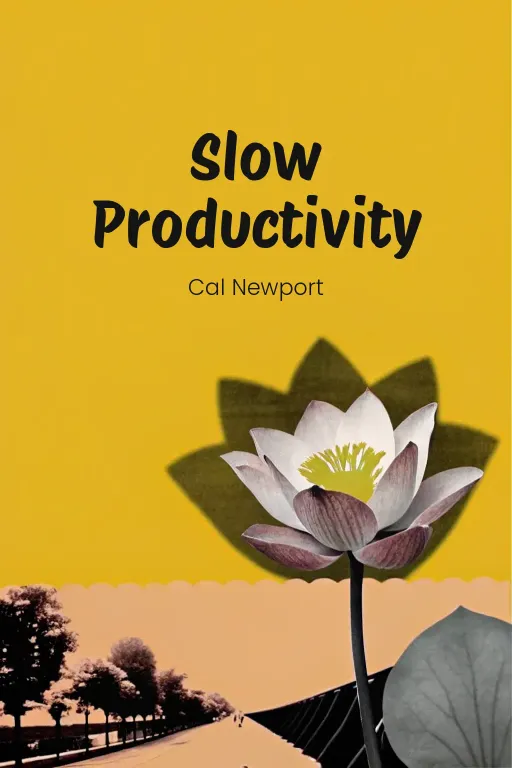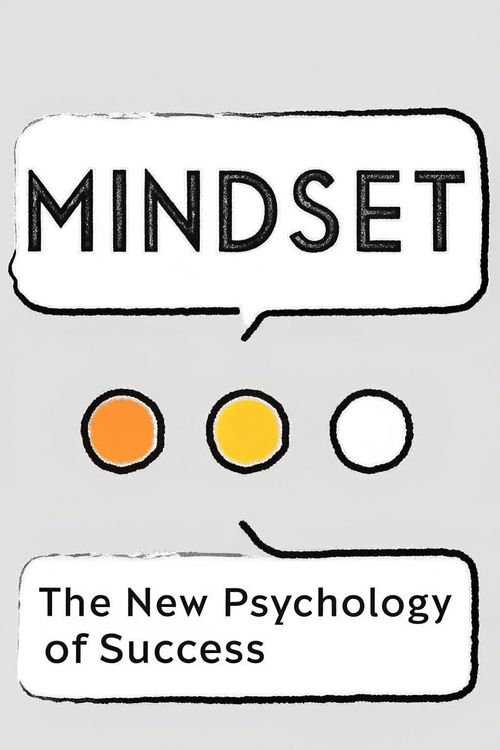
Grit: Turn Hardship Into Your Superpower
Podcast by Beta You with Alex and Michelle
The Navy SEAL Way to an Extraordinary Life
Introduction
Part 1
Alex: Hey everyone, welcome back to the show! Today, we're jumping right into Brent Gleeson's “Embrace the Suck: The Navy SEAL Way to an Extraordinary Life”. Michelle: <Slightly sarcastic> Oh, fantastic. Nothing screams “relatable daily struggles” quite like tales from Navy SEAL training. Alex, I'm all ears to hear how stories of icy water and enduring Hell Week will inspire me to push through my overflowing inbox. Alex: <Laughing> Okay, fair point maybe, but let's reframe it a little. We all face hurdles, right? Heartbreak, burnout, even just those moments of feeling stuck. Gleeson's core message is that hardship isn't just unavoidable; it's actually a catalyst. By consciously choosing to confront discomfort, we unlock opportunities for growth and discover our purpose. Michelle: So embracing the suck... Does this imply we should welcome pain like a beloved family member? Not sure that sounds particularly… motivating. Alex: <Enthusiastically> Not just any pain, but intentional discomfort. Gleeson blends his experiences as a Navy SEAL with actionable strategies for anyone looking to take control of their mindset, be more accountable, and, crucially, align their actions with their core values. Michelle: Alright, you've piqued my interest; I'm willing to play along. Paint the picture -- what exactly will we be diving into? Alex: We're going to break down the essence of the book into three key areas. First, we'll explore how difficulty can truly be your greatest teacher – Gleeson reveals why suffering and hardship are actually prime opportunities for growth. Secondly, we’ll look at tactics for cultivating discipline and accountability because, let's face it, relying on motivation alone just doesn't cut it long-term. And finally, we'll discuss how to live a life driven by your values, so you can build a legacy that “really” matters. Michelle: So, essentially, a crash course in gracefully enduring the inevitable pains in life? Is that the idea? Alex: <Smiling> If by "gracefully" you mean with purpose, then absolutely! This book isn't about dwelling on our problems. It's about leveraging our challenges and transforming them into building blocks for something truly extraordinary. Ready to dive in?
Embracing Adversity as a Pathway to Growth
Part 2
Alex: Okay, so picking up where we left off, let’s dive into the first big idea in Gleeson’s framework: seeing adversity as this inevitable, transformative thing. From his SEAL experience, he’s super clear that hardship isn’t just something you grin and bear, it’s actually something you actively use to grow. Michelle: Right, because who wouldn’t jump at the chance to “actively leverage” shivering in the ocean while some drill sergeant yells at you to quit? I mean, if that’s not a personal development seminar, I don’t know what is. Alex: But that's the key, right? Gleeson uses Hell Week to show how pain can be a real pathway to resilience. Picture this: SEAL candidates, freezing in the water up to their necks, arms linked. They're shaking so hard. And the instructors are yelling, "All it takes is one quitter to end this! Just ring the bell and stop!" Michelle: Hold on—so the strategy here is…hypothermia-induced peer pressure? Is this not a recipe for a psychological thriller? Alex: I know, it sounds insane. What Gleeson’s getting at is the mental shift that happens. The candidates who make it don’t focus on how much they’re suffering at that moment. They break it down wave by wave, change their thinking, and remind themselves the pain won't last forever. The real change happens when they understand that discomfort is pushing them past what they thought they could handle. Michelle: Okay, I’ll grant you, the mental judo makes a certain kind of sense. Just block out how much you’re suffering, concentrate on surviving the next…wave of frostbite. But doesn’t this also train people to just ignore their survival instincts? Alex: Not at all, it’s more about resetting your response to tough situations. I’m reminded of Gleeson’s line, "Pain is your coach, not your punishment." You use those icy waves to mold you, not defeat you. When you stop seeing roadblocks as impenetrable barriers and start seeing them as tools, that’s when you’re really building resilience. Michelle: Okay, got it. Less about blindly pushing through, more about mastering your reactions to fear and discomfort. But come on, most of us aren’t exactly lining up for Hell Week. So how does this translate into, well, real life? Alex: Great question. Gleeson breaks it down with two simple, practical tools: reframing adversity and deliberately seeking out discomfort. Michelle: Alright, deliberate discomfort sounds like a… well, like a torture tactic masquerading as self-help. Alex: <Laughs> Not really! Reframing adversity is about changing the story you tell yourself when you're facing something tough. Say you're stuck in a job you hate or dealing with difficult family stuff. Don't just fall into a pit of despair, reframe it: “This won’t last forever. This is teaching me a skill I’ll need later." It shifts the focus from feeling helpless to empowered. Michelle: Reframing, I get that. It’s like telling yourself, "This is just a plot point on the Hero's Journey" instead of whining, “Why is the universe picking on me?” But what about this whole “intentional discomfort” thing? Alex: Intentional discomfort is basically toughening yourself up by facing small, controlled challenges. It’s like exercise for your mental toughness. Gleeson suggests simple things like waking up at 5 AM for a run, taking cold showers, or tackling your most dreaded task first thing in the morning. It’s about building up your tolerance in small doses, so you're better equipped when serious problems come along. Michelle: So, it's like brain bootcamp? You push yourself in the small things, so you don’t get completely sideswiped by the big stuff. Alex: Exactly! And the payoff can be huge. Gleeson saw this in his SEAL training. Remember that super sad story about John, his classmate who drowned during Hell Week? Michelle: Yeah, that “really” got to me… the fact that they just kept going after something so awful. Alex: That’s the power of shared adversity. After John's death, their class was devastated—exhausted, grieving, and still in the middle of the most brutal week ever. But instead of letting it crush them, they used their grief to motivate them to honor him. It wasn’t just about personal resilience anymore; it was about collective resilience. Michelle: I can see how suffering together could create a bond like nothing else. It's like being in the trenches together, whether literally or not. Alex: Totally! Gleeson says one of his biggest takeaways was that resilience isn’t just about being tough on your own, it gets stronger when you have a community, a clear purpose, and mutual support. Michelle: Alright, I’ll give credit where it’s due. I’m starting to see how facing adversity—whether it’s freezing in the ocean or navigating office politics—could shape you into someone who doesn't crumble under pressure. Alex: That’s the whole point, Michelle. The surf zone might feel far removed from the struggles we face daily, but the idea is the same: Adversity strips away everything fake, reveals who we really are, and teaches us to adapt. When we embrace that, we grow. Michelle: So instead of running from the waves, we charge straight into them. Alright, I’ll buy it… but I am definitely skipping the cold showers. Alex: Baby steps, Michelle—maybe just try hitting the alarm instead of snooze tomorrow?
Discipline and Accountability in Execution
Part 3
Alex: So, after getting a solid handle on dealing with tough times, the next step is putting these ideas into practice every day. Jocko Gleeson doesn’t just leave us hanging with the theory of embracing difficulty; he gives us real tools to control how we work towards our goals. And at the heart of it all is discipline and accountability. Michelle: Oh, here we go. So, not only do we have to embrace the suffering, now we have to manage it with spreadsheets and plans? Alex: <Laughs> In a way, yes! Discipline is really the foundation for getting things done, and accountability keeps us on track. Gleeson points out that motivation is unreliable—it disappears the second things get hard—but discipline is what keeps you going. Michelle: Motivation is unreliable—like my enthusiasm for early morning workouts. Got it. But seriously, what's the real difference between discipline and just forcing yourself through something awful? Alex: It's all about your “why”. Discipline isn't about punishing yourself; it's about acting with intention. Gleeson explains this using something he calls the "Outcome Pyramid." It's a framework for connecting your goals, habits, and values to help you execute effectively. Michelle: Sounds like just another infographic to distract me from procrastinating. What's the bottom line? Alex: The pyramid has three layers. First, you define a clear, measurable outcome. Second, you map out your actions and habits to that outcome. And the last layer, which brings it all together, is grounding everything in your core values and purpose. Michelle: Okay, but let's not gloss over this "clear outcome" part. Alex, you and I both know how vague people get with their goals. "I want to be healthier," "I want to be rich," or, my personal favorite, "I want to figure my life out." Alex: Exactly! That's why Gleeson emphasizes being super specific. Without a clear, concrete goal, you're just wandering around. He uses a great example, comparing life goals to military mission planning. When SEAL teams go on a mission, their objective isn't just "win the day." It needs to be precise—like rescuing hostages within a certain timeframe. Michelle: Right, so in regular people terms, it's like saying, "I'll double my savings by December," instead of vaguely hoping you had more money by skipping Starbucks for a week. Alex: Exactly! Clarity makes your goal actionable. Let's say you’re training for a marathon. Don't just decide you’re going to “run a marathon.” Be specific about the distance, time, and result. “I will run a marathon by January and finish within four hours.” That kind of crystal-clear target lets you map out the next steps and keeps you focused. Michelle: Alright, you've set the goal. Now comes the hard part—actually doing it. What's this mapping you mentioned? Alex: That’s the second layer of the pyramid: aligning your daily actions and habits to your outcome. Gleeson explains that small, consistent habits turn big goals into real achievements. Michelle: Okay, so it’s baby steps. Basically, the same approach parents use to teach toddlers how to not fall off their bicycles? Alex: Precisely. The idea is to break down your journey into manageable tasks. Gleeson shares how during Hell Week, SEAL candidates succeed not by focusing on finishing the entire week, but by tackling one small thing at a time. One evolution, one hour, or even one freezing moment. That mindset translates perfectly to our lives. It’s all about momentum. Michelle: Let me see if I get this. I need to chip away at my goal in small pieces, concentrate on finishing one thing at a time, and eventually, I’ll build up the discipline to keep going. But Alex, you know how life is—dreams don’t die because people miss steps. They die because distractions show up. Alex: And that's why the third layer is so important: grounding your actions in your core values and purpose. According to Gleeson, your values fuel your discipline. If your goals are connected to something deeply meaningful to you, then it keeps you going even when the novelty wears off. Michelle: Hmm… so instead of seeing values as this abstract, feel-good stuff, you’re positioning them as anchors to hold you steady. Clever. Alex: Exactly! Gleeson uses the example of Alex Honnold, the climber who free soloed El Capitan. For Honnold, his goal wasn't just some physical challenge—it was deeply connected to his passion for climbing and his long-term goal to inspire others and give back through his foundation. That connection made the grueling process not just bearable but fulfilling. Michelle: And here I thought he was just a guy who liked to live dangerously. Alex: Well, maybe there’s a little bit of that too. But the takeaway is this: when your purpose aligns with your goals, it transforms discipline from an obligation to something deeply rewarding. Michelle: Honestly, Alex, this layered approach doesn’t sound half bad. I can see how having a clear goal, actionable steps, and values-based motivation would make it easier to stay focused. It’s like having a personal GPS for productivity. Alex: And accountability is the recalibration you need when you drift off-course. Gleeson talks about how he took some tough feedback during his early attempts at public speaking. Instead of getting defensive, he used it to reassess and improve. That humility and accountability helped him grow in leaps and bounds. Michelle: So instead of nursing your ego after criticism, you analyze, course-correct, and move forward. Got it. Feels less like blame and more like a systems check. Alex: That’s a great way to put it. Discipline plus accountability equals consistent progress. It’s not about being perfect—it’s about showing up and making small improvements. Michelle: And learning to balance the suck with purpose. Alright, Alex, you might actually convince me to try this pyramid thing.
Living with Purpose and Legacy
Part 4
Alex: So, with these frameworks in place, we can really start thinking about what it means to live a meaningful and extraordinary life. This is where Brent Gleeson really dives into his core philosophy: living with purpose and creating a lasting legacy. Michelle: Purpose and legacy, huh? Now we're getting all philosophical on everyone. So, I'm picturing us sitting here, contemplating our own eulogies over a cup of existential tea? Alex: <Laughs> Something like that, Michelle, but it’s also where the conversation gets “real”. Gleeson asks us the big question: When your time comes, how do you want to be remembered? Not for the fleeting stuff – money, status, likes – but for the values you upheld and the impact you had. Michelle: Right, so less "vacation pics" and more focusing on "eulogy virtues." A refreshing change, I must say. But how does someone even identify these values and priorities in the first place? Alex: Well, it starts with some deep self-reflection. Gleeson suggests creating a Personal Values Manifesto. Think of it as your own life's strategic playbook. You identify your core values – integrity, compassion, perseverance – and then align them with your actions and goals. Michelle: A life playbook? Whew, sounds a bit overwhelming. Like staring at a blank page being told to define the meaning of life. Where do you even start? Alex: Exactly! That's why Gleeson breaks it down into manageable – and slightly uncomfortable – questions. Like, "What do I value most in life?" or "How do I “really” define success?" and "What traits do I want to be remembered for?" Michelle: Okay, I can imagine doing this. Part of you wants to trot out the typical answers – "family," "honesty" – like you're writing a Hallmark card. But there's probably a hard truth to it all in asking if your actions actually match those values. Alex: Exactly. Alignment is key. It's not enough to say you value integrity if you're cutting corners, or claim family is important while you're working 80 hours a week. A manifesto forces you to connect your beliefs to real, tangible behaviors. Michelle: Alright, say someone hammers out their core values. How does that translate into intentional living? Alex: Okay, so Gleeson suggests translating those values into daily actions. Let's say perseverance is a value. Okay, well that could mean sticking to commitments, like a work deadline or marathon training. Or, if kindness is a priority, then find ways to support others every single day. Michelle: So, values aren't just ideas, they're verbs. You prove them with doing, not with saying. Alex: Exactly! And another piece is revisiting the manifesto regularly. Life throws curveballs and your perspective shifts. Revisiting it ensures that actions are relevant and meaningful as goals evolve. Michelle: Cynic hat on here, Alex. Isn’t this whole eulogy thing a bit depressing? Dwelling on mortality… how does that make people live better? Alex: Actually, that's where the power comes in. Mortality isn’t meant to depress us, it's meant to clarify. Gleeson argues that thinking about your limited time lights a fire to live authentically and stop wasting moments on trivial things. Michelle: So, instead of an anchor, the thought of death is a compass pointing at what truly counts? Alex: Precisely! Gleeson even calls it an “Embrace the Suck Regrets Checklist.” You write down actions – or inactions – that might lead to regret if you continue down the path. It’s rough, but it forces you to change course. Michelle: So, instead of a bucket list of fun vacations, it’s a bucket list of behaviors to fix ASAP. Alex: It's eye-opening. Gleeson shares how the death of his SEAL teammate, John, during training, united their class in a way nothing else could. They channeled their grief into honoring John’s legacy by doubling down on shared values – perseverance and brotherhood. Michelle: Incredible how loss can strip away the superficial. You focus on what truly matters and the trivial stuff fades into the background. Alex: Exactly. Gleeson emphasizes that living on autopilot, chasing superficial achievements, is a waste of precious time. By facing our mortality, we align every decision with long-term impact instead of short-term gain. Michelle: Okay, I’ve got to ask… what about someone who isn’t a SEAL or in these high-stakes environments? What could this look like for… say, someone living a typical suburban life? Alex: Great question! Legacy isn’t about grand gestures, like facing war zones or becoming a public figure. Gleeson emphasizes small, daily actions that build legacy – acts of kindness, investing in relationships, supporting your community. Michelle: So, everyday heroism. Being intentional in the small moments. Like being a parent who’s present, a friend who listens, a coworker who helps others shine. Alex: Exactly! It's about embracing what you can control and leaving an impact through values-driven actions. Gleeson believes that when you're crystal clear on your purpose, even mundane routines become steps toward your legacy. Michelle: Okay, I can get behind that. Legacy isn’t about lighting the world on fire – it’s about leaving a spark that lasts. Alex: Beautifully said, Michelle! And Gleeson's ultimate challenge is to live that way now. Don’t wait to create a life you're proud of. Michelle: Okay, stop daydreaming about what you might do and start acting on the values you have today. Sounds easier said than done, but also… motivating. Alex: Heavy, yes, but also empowering. When you align your values, actions, and goals, you're not just embracing the suck—you’re rising above it.
Conclusion
Part 5
Alex: Okay, so, to wrap things up, “Embrace the Suck” by Brent Gleeson, really drives home the idea that adversity isn't just something we have to put up with. It's actually a powerful teacher that can totally transform us. If we reframe our challenges, intentionally push ourselves out of our comfort zones, and stay disciplined, that's how we unlock our potential. Michelle: Right, but it's not just about, you know, suffering for the sake of suffering. There has to be a “why,” right? Aligning what you want to achieve with your values, building a life that actually means something and that you’d feel good about being remembered for. You don't need to be a Navy SEAL to make this happen; it's about taking those small, deliberate steps forward. Alex: Precisely. Gleeson's point about legacy brings it all together. Basically, live each day like you’re building the story you want people to tell about you. Challenge yourself, stick to your values, and try to make a positive impact wherever you can. Michelle: Okay, Ang, I'm sold. Maybe I'm not quite ready for the cold showers just yet. But I'll definitely start thinking bigger picture and acting with a bit more purpose. Small steps as you said. Alex: That's absolutely all it takes! Thanks everyone for tuning in today. Just remember, discomfort is not the enemy, it's actually the key to growth. Ready to embrace the suck? Let's do it.

